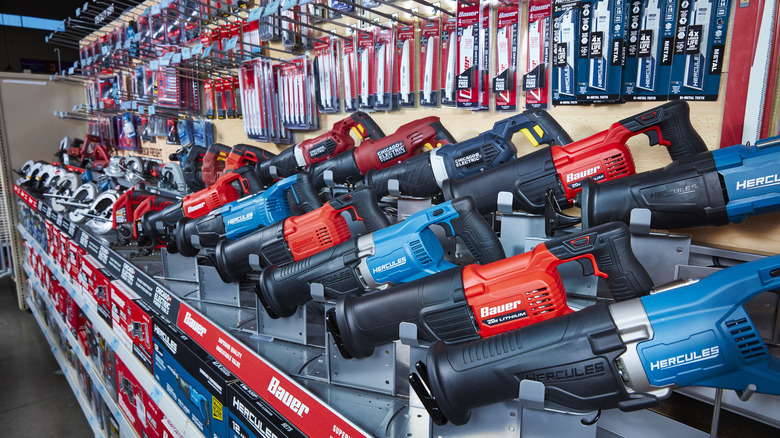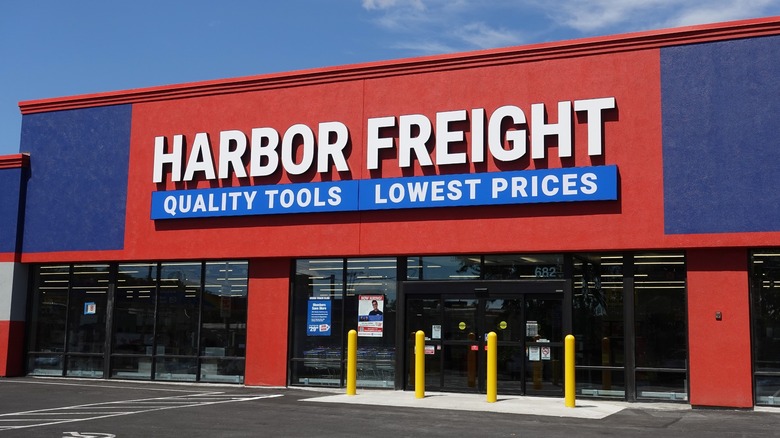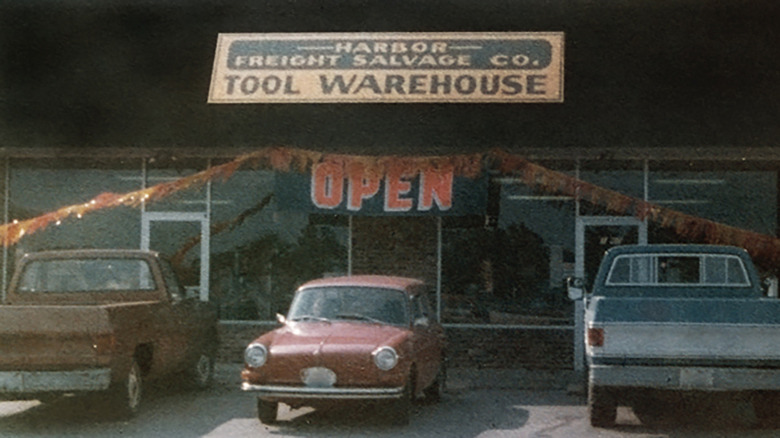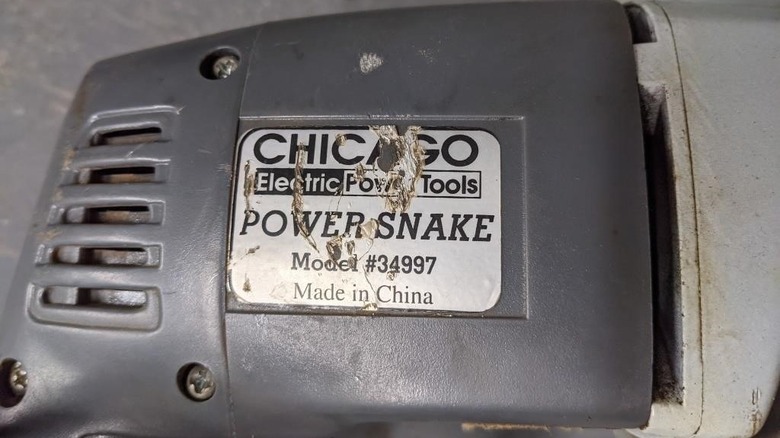Who Owns Chicago Electric Tools And Where Are They Made
If you've ever needed to put something together but didn't quite have the budget for a high-price, last-your-whole-life toolset, you may have encountered Chicago Electric Tools. Its price mark is perfect for people who are money-conscious, or just need to order something in a pinch. But where are these tools really from? You might be surprised to hear that, despite the name, they're not quite from Chicago.
Chicago Electric Tools is owned by a larger tool company, Harbor Freight. It was launched in 1977 by a father and son duo. Over the past 40 years, it has expanded into physical stores and a website that sells hundreds of brands, even their very own Chicago Electric Tools.
The Harbor Freight website does not specifically say where Chicago Electric Tools products are made. However, it isn't that much of a mystery: people who have purchased tools from the company report 'made in China' labels on the products themselves. This makes sense when you consider other Harbor Freight products, like its U.S. General toolboxes, which are also made in China. Below, we'll tell you all you need to know about Chicago Electric Tools and its history.
The company behind Chicago Electric Tools
Harbor Freight is a huge name in the tool industry. The company has over 1,400 stores, and throughout these locations, it employs more than 25,000 associates across the United States. Harbor Freight specializes in having a wide range of tools that pass its quality threshold but are considered discounted. The company boasts of selling its tools for 80% lower than competing tool brands.
According to the Forbes company profile for Harbor Freight, it brought in $6.5 billion in revenue in 2023. Harbor Freight comes in at number 86 on the list of largest private companies in America.
Forbes has also named it the best employer for veterans, based on a survey the news resource carried out. The survey took into consideration 5,000 veterans, all of whom work for companies with a minimum of 1,000 employees. The study was done in partnership with the research marketing firm Statista, and it ran for four months in 2020.
The Smidts and their family business
While it sells millions of tools a year now, Harbor Freight had humble beginnings and a rocky end to the collaboration. In 1977, Allan Smidt and his then teenage son Eric launched a mail-order tool business that they called Harbor Freight Salvage. The company's beginnings were tainted by personal struggles. Eric Smidt only lived with his father until the age of nine, when his mother's multiple sclerosis became so bad that she could no longer parent him. Allan Smidt decided he couldn't keep Eric, so Eric was first sent to an orphanage and then to live with an aunt in Tennessee. At 16, Eric moved back to California by himself.
Eric used his job with Harbor Freight to get high school credits and graduate, then started looking into how to scale back the company's prices and be competitive. By 1985, Eric Smidt was the company's president. Eric and Allan continued to co-own it until 1999, when Eric bought out his father's half of the business, becoming the CEO and sole owner of the company.
Unfortunately, it seems like it wasn't a completely peaceful father-to-son handover. In 2010, Allan Smidt sued his son for leveraging the company to fund his lifestyle. According to Allan, his son "persuaded" the elder Smidt and his wife into selling the company. The agreement at the time was that Eric would pay his father $2.5 million per year, and still give him some control in major company decisions, but, according to the lawsuit, this agreement did not come to fruition. While it's uncertain if the father and son themselves have made amends, they did eventually settle the case out of court.
Where Chicago Electric Tools are made
Harbor Freight is not exactly forthcoming about where its Chicago Electric Tools branded merchandise is made. Looking through various reviews from consumers, there have been repeated occasions where users commented on the tools they received, saying that their products had "made in China" labels. Searching through reseller sites like eBay allows you to see the product packaging, where the "made in China" label is sometimes visible.
The tools being made in China also follows the common Harbor Freight trend with other private-label brands. For example, its U.S, General toolboxes say that they're distributed by Harbor Freight Tools of Calabasas, California, but that they are, in fact, made in China.
Harbor Freight has, at one point, addressed the question. Though this page was removed from its website sometime after May of 2022, the internet, as we all know, is forever. The company's statement asserts that, "All of our tools are designed and built in partnership with the same factories that many of our top leading competitors use."
What Harbor Freight declares in the statement may be true, but it still stands to reason that this is information that some consumers may want to know. The same page also clarifies that all tools have a 90-day "no questions asked" guarantee, and links to a different statement about the company's corporate integrity and ethical behavior. That page, which does still exist, is the Transparency Act Disclosure required by all companies that operate in California.
The Smidt Foundation
Despite the accusations, Eric Smidt does ensure that some of the Harbor Freight profit goes to people and places in need. According to Harbor Freight's charitable donations website, the company "gives back" through donations of gift cards and tools both to company associates and local organizations.
Smidt is particularly passionate about funding schools that have programs for the trades. Through the creation of Harbor Freight Tools for Schools, the company started out in 2013 by donating over $1.4 million worth of tools to the Los Angeles Unified School District. In 2017, the organization continued the effort by creating an annual prize in which ten teachers annually are given a hundred thousand dollars.
Smidt and Harbor Freight also donate to other organizations like Big Picture Learning, a program that exists to further high school apprenticeships. Smidt himself has also made donations to the Los Angeles County Museum of Art and spent $50 million creating the Smidt Heart Institute at Cedars-Sinai Hospital.
The family behind Harbor Freight has a rich history, and the company remains highly valued by many customers. if you need to get yourself some cheap tools for working on a car or painting a room, you can know that you're paying less and supporting some good causes.




